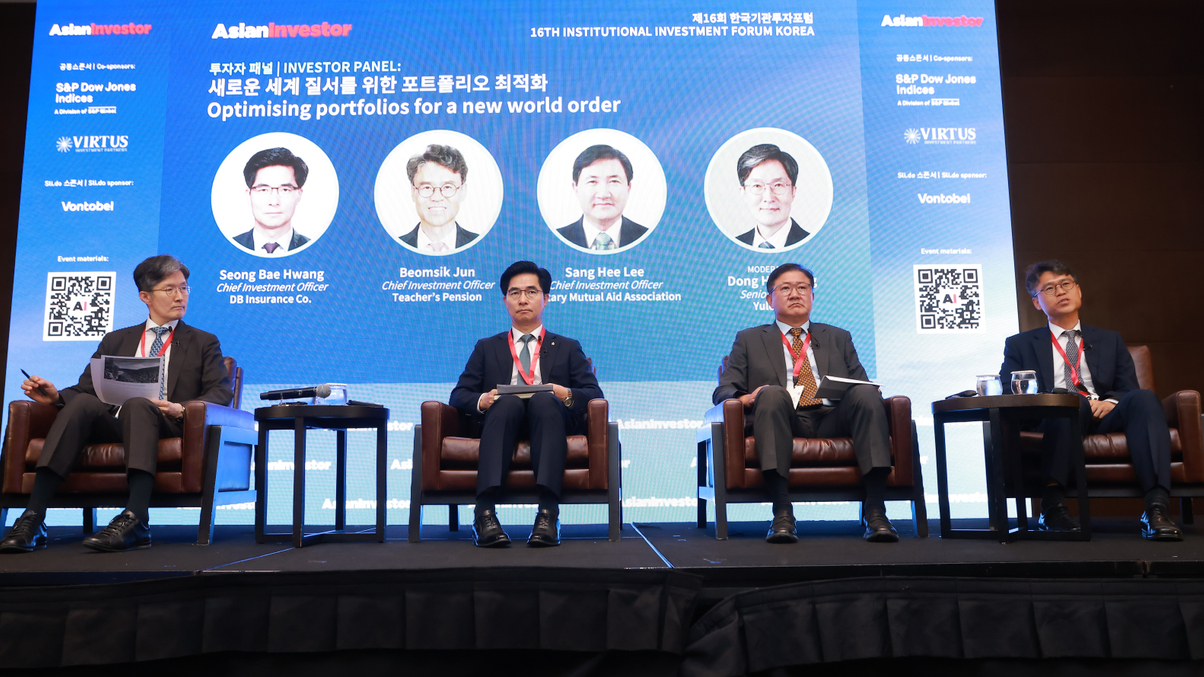Korean asset owners adjust strategies as higher rates persist
Whether high interest rates are a help or a hurdle heavily depends on who you ask, delegates heard at AsianInvestor’s Institutional Investment Forum Korea.

Korean asset owners see the higher-for-longer interest rates environment as both challenging and beneficial for their allocation strategies, delegates heard at AsianInvestor’s 16th Institutional Investment Forum Korea in Seoul.
Sign in to read on!
Registered users get 2 free articles in 30 days.
Subscribers have full unlimited access to AsianInvestor
Not signed up? New users get 2 free articles per month, plus a 7-day unlimited free trial.
¬ Haymarket Media Limited. All rights reserved.


